



Suggested Citation: Garg, Aditya, Sonal Kumar and Shikha Bhasin. 2023. Activating Circular Economy for Sustainable Cooling: Global Best Practices on Lifecycle Refrigerant Management. New Delhi: Council on Energy, Environment and Water.
Given the detrimental damage refrigerants used in the cooling systems causes to the atmosphere, some countries have taken actions to control their refrigerant emissions beyond the scope of the Montreal Protocol. This brief delves into the pragmatic measures selected countries took to regulate and reduce refrigerant emissions from various cooling applications. It encompasses topics such as business models, emission control regulations, and policies for the disposal of end-of-life appliances and refrigerants. It provides valuable insights for India to consider while developing its strategy for lifecycle refrigerant management.
Reducing refrigerant emissions helps safeguard the environment and the stratospheric ozone layer. Refrigerants are often colourless and odourless, unlike other environmentally harmful waste or emissions, making violations (such as discharging them into the air) simple to cover up and challenging to trace. Several laws and initiatives are in place worldwide in numerous nations to reduce refrigerant emissions and encourage refrigerant management.
Around the world, there are several refrigerant management programmes and strategies. Some nations, including Australia, Japan, and Norway, rely on solid regulatory regimes that regulate refrigerants from upstream to downstream. Others, including New Zealand, Denmark, and the US, combine voluntary initiatives with less stringent requirements. Variables, such as cultural, climatic and market variations, influence these strategies. Unfortunately, evaluating the strictness and efficiency of these programmes is exceedingly challenging.
This issue brief identifies and makes sense of the international laws, policies, mechanisms, and infrastructure that govern refrigerant lifecycle management. A study trip to Norway was included to better understand the infrastructure and overall regulatory system that facilitates refrigerants recovery, collection, and destruction there. The issues covered in this review include business models, regulations, policies governing the operational equipment management and the end-of-life (EOL) disposal of refrigerants and appliances, and the lessons India may use to manage refrigerants over their lifetimes.
The conclusion of this issue brief is that sector-specific stringent regulations accompanied by a robust monitoring and reporting mechanism plays a critical role in limiting refrigerant lifecycle emissions. Additionally, voluntary actions by the industry, incentives to waste handlers to recover the refrigerant, licensing of refrigerant handlers, and the infrastructure act as supportive measures. Limiting refrigerant emissions is a challenging task to achieve and will require a mix of the above-mentioned measures used globally.
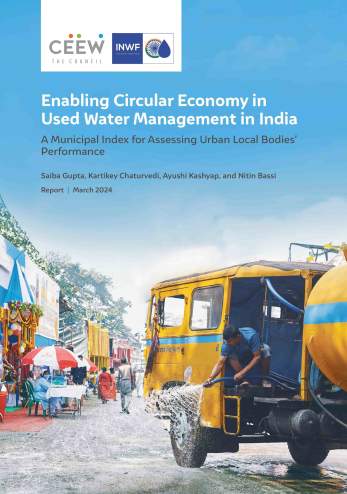
Enabling Circular Economy in Used Water Management in India
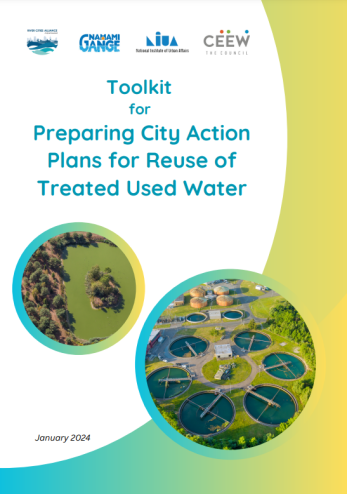
Toolkit for "Preparing City Action Plans for Reuse of Treated Used Water"
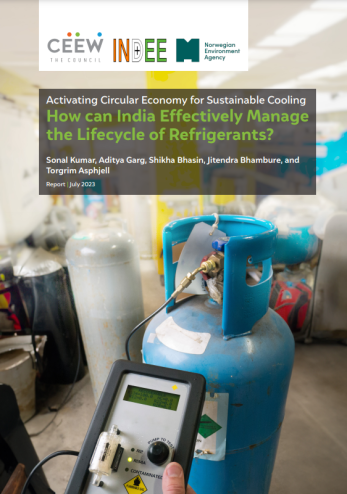
Activating Circular Economy for Sustainable Cooling
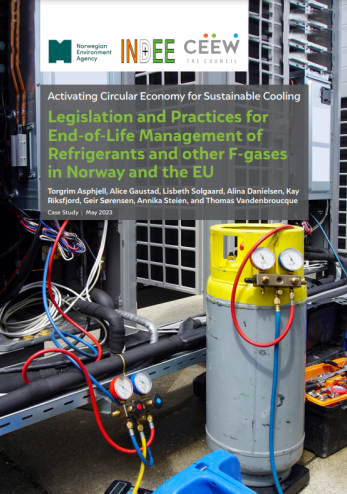
Activating Circular Economy for Sustainable Cooling
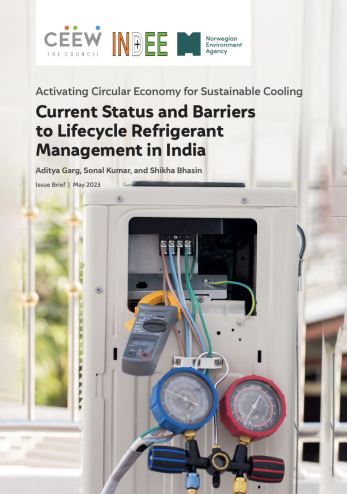
Activating Circular Economy for Sustainable Cooling